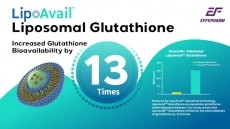Red cabbage could cut Alzehimer's risk
certain plaques in the brain that could cause Alzheimer's disease,
the most common form of dementia that costs the UK an estimated £15
billion (€ 22 billion) every year.
Although the mechanism of Alzheimer's is not clear, more support is gathering for the build-up of plaque from amyloid deposits. The deposits are associated with an increase in brain cell damage and death from oxidative stress.
It is against the oxidative stress that the anthocyanins and other cabbage polyphenols appear to offer protection.
Writing in the journal LWT - Food Science and Technology, Ho Jin Heo and Chang Yong Lee from Cornell University said that the benefits of phytochemicals from dietary sources for neurodegeneration diseases, like Alzheimer's, is only beginning to be explored by scientists.
The scientists tested the effect of red and white cabbage polyphenols, extracted from 135 grams of fresh cabbage using chilled methanol extraction, on the oxidative stress on cell cultures by the amyloid protein A-beta.
The average total polyphenol concentration of the red cabbage was 190 milligrams per 100 grams of fresh weight, while white cabbages yielded only 45 milligrams per 100 grams.
Red cabbages also contained significantly more anthocyanins than the white cabbage variety: 23 versus 0.01 milligrams per 100 grams.
The antioxidant activity of the extracts was measured by comparing to vitamin C using the vitamin C equivalent antioxidant capacity (VCEAC) assay.
"The VCEAC of red cabbages was about six to eight fold of white cabbages, and the difference of antioxidative capacity may be due to the contents of phenolics including anthocyanins," reported the scientists.
The higher concentrations of antioxidants, particularly the anthocyanins, from the red cabbage resulted in greater protection from the A-beta-induced toxicity to the cell cultures.
"The phenolics from red cabbage significantly blocked A-beta-induced cytotoxicity in a dose-dependent manner (greater than 600 micrograms per millilitre), while white cabbages showed lower activities.
Additional consumption of vegetables such as red cabbages may be beneficial to increase chemopreventive effects in neurodegenerative diseases such as Alzehimer's," concluded Heo and Lee.
The news come hot on the heels of a similar report in the Journal of the Science of Food and Agriculture (doi: 10.1002/jsfa.2409) from New Zealand researchers who looked at blackcurrant extracts and Alzehimer's.
The protective effects of the currants were again linked to the high anthocyanin content, and the researchers concluded: "The phenolic extract of blackcurrant demonstrated the highest protective effect and may be a good candidate for inclusion into a processed functional food."











